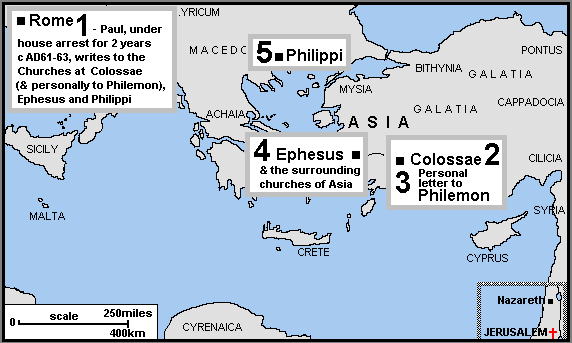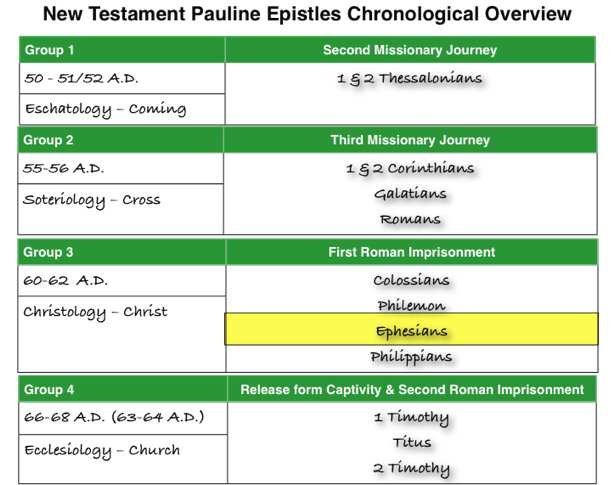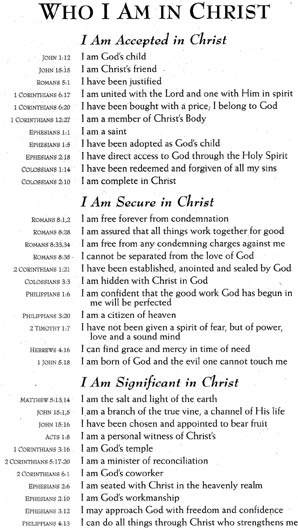


Above is the Roman theatre at Ephesus which held 20,000 or more spectators.
(Acts 19:29-40).
The Temple to Diana (Artemis) of the Ephesians -
measured 300 by 150 feet, with columns 60 feet high.
Considered one of the seven wonders of the ancient world.
(Acts 19:29-40).
We are now entering the Holy of Holies in scripture and are now on VERY holy ground - Take off your shoes!
Many Christians who love the Word have their favorite books, chapters and verses. My favorite and most read book is Ephesians. My favorite verses in the Bible are Ephesians 2:8-9 (KJV): For by grace are ye saved through faith; and that not of yourselves: it is the gift of God: Not of works, lest any man should boast.
My wife's favorite verse in the Bible is also in Ephesians: Ephesians 1:6: To the praise of the glory of his grace, wherein he hath made us accepted in the beloved.
Ephesians is the capstone of Scripture and the crowning glory of the New Testament! Ephesians is where Paul's other writings, especially Galatians and Romans, are pointing to and is built on the foundation of Romans. Nowhere else in the Bible is the position of the Christian so emphasized and so important. Here, we learn that the believer not only died and rose again in Christ, but that he is NOW in God's sight and purpose SEATED with Christ in the heavenlies!
Ephesians is six chapters - the first three are doctrine and the second three are practical application of the doctrine.
The sister letter of Ephesians is Paul's letter Colossians.
The Christians at Ephesus were certainly among the recipients of this letter, but undoubtedly there were others. In many of the original Greek manuscripts there is a blank where the King James translation has the words "at Ephesus;" just a line where the names of other recipients were apparently to be filled in. That is why the Revised Standard Version does not say, "To the saints at Ephesus," but simply "To the saints who are also faithful in Christ Jesus..."
To fully appreciate the Letter to the Ephesians, one should first read Acts, Romans and Galatians. After studying Ephesians, it would be very useful to then study its parallel epistle - Colossians and, finally, Paul's last letter and farewell - 2 Timothy.
Related verses about the Ephesians and the church at Ephesus which Paul founded:
- Acts 18:19,24: They stopped first at the port of Ephesus, where Paul left the others behind. While he was there, he went to the synagogue to reason with the Jews. ... Meanwhile, a Jew named Apollos, an eloquent speaker who knew the Scriptures well, had arrived in Ephesus from Alexandria in Egypt.
- Acts 19:1,8-10: While Apollos was in Corinth, Paul traveled through the interior regions until he reached Ephesus, on the coast, where he found several believers. ... Then Paul went to the synagogue and preached boldly for the next three months, arguing persuasively about the Kingdom of God. But some became stubborn, rejecting his message and publicly speaking against the Way. So Paul left the synagogue and took the believers with him. Then he held daily discussions at the lecture hall of Tyrannus. This went on for the next two years, so that people throughout the province of Asia—both Jews and Greeks—heard the word of the Lord.
- Acts 19:23-41: About that time, serious trouble developed in Ephesus concerning the Way. It began with Demetrius, a silversmith who had a large business manufacturing silver shrines of the Greek goddess Artemis. He kept many craftsmen busy. He called them together, along with others employed in similar trades, and addressed them as follows: “Gentlemen, you know that our wealth comes from this business. But as you have seen and heard, this man Paul has persuaded many people that handmade gods aren’t really gods at all. And he’s done this not only here in Ephesus but throughout the entire province! Of course, I’m not just talking about the loss of public respect for our business. I’m also concerned that the temple of the great goddess Artemis will lose its influence and that Artemis—this magnificent goddess worshiped throughout the province of Asia and all around the world—will be robbed of her great prestige!” At this their anger boiled, and they began shouting, “Great is Artemis of the Ephesians!” Soon the whole city was filled with confusion. Everyone rushed to the amphitheater, dragging along Gaius and Aristarchus, who were Paul’s traveling companions from Macedonia. Paul wanted to go in, too, but the believers wouldn’t let him. Some of the officials of the province, friends of Paul, also sent a message to him, begging him not to risk his life by entering the amphitheater. Inside, the people were all shouting, some one thing and some another. Everything was in confusion. In fact, most of them didn’t even know why they were there. The Jews in the crowd pushed Alexander forward and told him to explain the situation. He motioned for silence and tried to speak. But when the crowd realized he was a Jew, they started shouting again and kept it up for two hours: “Great is Artemis of the Ephesians! Great is Artemis of the Ephesians!” At last the mayor was able to quiet them down enough to speak. “Citizens of Ephesus,” he said. “Everyone knows that Ephesus is the official guardian of the temple of the great Artemis, whose image fell down to us from heaven. Since this is an undeniable fact, you should stay calm and not do anything rash. You have brought these men here, but they have stolen nothing from the temple and have not spoken against our goddess. “If Demetrius and the craftsmen have a case against them, the courts are in session and the officials can hear the case at once. Let them make formal charges. And if there are complaints about other matters, they can be settled in a legal assembly. I am afraid we are in danger of being charged with rioting by the Roman government, since there is no cause for all this commotion. And if Rome demands an explanation, we won’t know what to say.” Then he dismissed them, and they dispersed.
- Acts 20:17-38: But when we landed at Miletus, he sent a message to the elders of the church at Ephesus, asking them to come and meet him. When they arrived he declared, “You know that from the day I set foot in the province of Asia until now I have done the Lord’s work humbly and with many tears. I have endured the trials that came to me from the plots of the Jews. I never shrank back from telling you what you needed to hear, either publicly or in your homes. I have had one message for Jews and Greeks alike—the necessity of repenting from sin and turning to God, and of having faith in our Lord Jesus. “And now I am bound by the Spirit to go to Jerusalem. I don’t know what awaits me, except that the Holy Spirit tells me in city after city that jail and suffering lie ahead. But my life is worth nothing to me unless I use it for finishing the work assigned me by the Lord Jesus—the work of telling others the Good News about the wonderful grace of God. “And now I know that none of you to whom I have preached the Kingdom will ever see me again. I declare today that I have been faithful. If anyone suffers eternal death, it’s not my fault, for I didn’t shrink from declaring all that God wants you to know. “So guard yourselves and God’s people. Feed and shepherd God’s flock—his church, purchased with his own blood—over which the Holy Spirit has appointed you as elders. I know that false teachers, like vicious wolves, will come in among you after I leave, not sparing the flock. Even some men from your own group will rise up and distort the truth in order to draw a following. Watch out! Remember the three years I was with you—my constant watch and care over you night and day, and my many tears for you. “And now I entrust you to God and the message of his grace that is able to build you up and give you an inheritance with all those he has set apart for himself. “I have never coveted anyone’s silver or gold or fine clothes. You know that these hands of mine have worked to supply my own needs and even the needs of those who were with me. And I have been a constant example of how you can help those in need by working hard. You should remember the words of the Lord Jesus: ‘It is more blessed to give than to receive.’” When he had finished speaking, he knelt and prayed with them. They all cried as they embraced and kissed him good-bye. They were sad most of all because he had said that they would never see him again. Then they escorted him down to the ship.
- 1 Timothy 1:3: When I left for Macedonia, I urged you to stay there in Ephesus and stop those whose teaching is contrary to the truth.
- Revelation 2:1-6: “Write this letter to the angel of the church in Ephesus. This is the message from the one who holds the seven stars in his right hand, the one who walks among the seven gold lampstands: “I know all the things you do. I have seen your hard work and your patient endurance. I know you don’t tolerate evil people. You have examined the claims of those who say they are apostles but are not. You have discovered they are liars. You have patiently suffered for me without quitting. “But I have this complaint against you. You don’t love me or each other as you did at first! Look how far you have fallen! Turn back to me and do the works you did at first. If you don’t repent, I will come and remove your lampstand from its place among the churches. But this is in your favor: You hate the evil deeds of the Nicolaitans, just as I do.
WHO:
- Written by the apostle Paul
- Carried by Tychicus to Ephesus with the letters to the Colossians and to Philemon.
- Readers: The church in Ephesus, but also a circular letter to other churches in the province of Asia.
- Paul sent Timothy to serve as the leader of the church in Ephesus (1 Timothy 1:3).
- 1 Timothy 1:3: When I left for Macedonia, I urged you to stay there in Ephesus and stop those whose teaching is contrary to the truth.
- The apostle John later served as the senior pastor of the Ephesian church, according to the early church fathers.
WHAT:
- Key verses: Ephesians 4:4-6: For there is one body and one Spirit, just as you have been called to one glorious hope for the future. There is one Lord, one faith, one baptism, and one God and Father, who is over all and in all and living through all.
- Key words:
- Heavenly places - 1:3,20; 2:6; 3:10; 6:12
- Hagios (holy/holiness, etc.) occurs 15 times.
- Walk occurs 7 times: 2:2,10; 4:1,17; 5:2,8,15.
- Grace occurs 12 times: 1:2,5,7; 2:5,7,8; 3:2,7,8; 4:7,29; 6:24
- In Christ/In Whom: 15 times in chapter 1; 6 times in chapter 2.
- Some of the most frequently used words:
- Christ
- God
- Lord
- Jesus
- People
- Body
- Father
- Everything
- Love
- Theme: The believer in Christ.
WHEN:
- Because Paul mentions his imprisonment (3:1; 4:1; 6:20), this letter was probably written about 60 or 62 A.D. when Paul was under house arrest in Rome (Acts 28).
- The church at Ephesus was founded about 53 A.D. on Paul's homeward journey to Jerusalem, but Paul returned a year later on his third missionary trip and stayed there for three years (Acts 19:1-20).
WHERE:
- From Paul while under house arrest in Rome.
- To Ephesus and other churches in the province of Asia.
- Ephesus was a wealthy port city and capital of the Roman province of Asia. It was a center of learning and was positioned near several key land routes in western Asia Minor. Ephesus was once the commercial center of the ancient world. The city was dedicated to the goddess Artemis. Her enormous temple, once considered one of the Seven Wonders of the Ancient World and rebuilt several times, in its latest form dates from the third century B.C
WHY:
- The Christian Jews of Asia may have been keeping themselves somewhat aloof from Gentile converts. In this general letter, Paul shows that God sent Christ to break down the ancient barriers between Jew and Gentile; through a shared faith, all are one as the Body of Christ. The second part of the letter has advice on the Christian life including the well-known verses on the "armor of God" (6:10-18).
Key Themes:
- All people are by nature spiritually dead, transgressors of God's law, and under the rule of Satan. 1:7; 2:1-3, 5, 11-12
- God predestined his elect to redemption and holiness in Christ according to the free counsel of his will. 1:3-14; 2:4, 8-9
- God's rich mercy in Christ has saved sinners; this free gift is by grace through faith alone. 1:7-8; 2:4-14
- Christ's earthly work of redemption was part of his cosmic reconciliation and exaltation in this age and the next. 1:15-23; 3:1-13
- Christ's reconciliation entails uniting all people, whether Jew or Gentile, into his one body, the church, as a new creation. 1:23; 2:10-15; 3:1-21; 4:1-6
- Christ's people are renewed to new lives of holiness in thought, word, and deed, and must reject their old, sinful lifestyles. 4:1-3, 17-32; 5:1-20
- Holiness of life entails submission to proper authorities, and loving and considerate care for those in submission. 5:21-6:9
- Christ has given powerful gifts to his church to bring about her unity, maturity, and defense against the onslaughts of the devil and his allies. 4:7-16; 6:10-19
Outline
- Introduction (1:1-14)
- Greetings (1:1-2)
- Spiritual blessings in Christ (1:3-14)
- Paul's Prayer of Thanksgiving (1:15-23)
- Salvation by Grace through Faith (2:1-10)
- Hopelessness and helplessness without Christ (2:1-3)
- Hope in Christ (2:4-10)
- Unity and Peace of Christ (2:11-22)
- Unity of Christ's people (2:11-15)
- Peace with God (2:16-18)
- Implications of Christ's peace (2:19-22)
- Revelation of the Gospel Mystery (3:1-13)
- Paul's apostolic ministry (3:1-7)
- The mystery and wisdom (3:8-13)
- Paul's Prayer for Strength and Insight (3:14-21)
- Unity of the Body of Christ (4:1-16)
- Exhortation to unity (4:1-6)
- The different gifts (4:7-10)
- The gifts for edification of the church (4:11-16)
- Paul's Testimony (4:17-24)
- Exhortation to an Edifying Lifestyle (4:25-32)
- New Life in Love (5:1-20)
- Exhortation to self-sacrificial love (5:1-2)
- Instruction in holy living (5:3-20)
- Submission to One Another (5:21-6:9)
- Submission in general (5:21)
- Wives and husbands (5:22-33)
- Children and parents (6:1-4)
- Slaves and masters (6:5-9)
- The Whole Armor of God (6:10-20)
- The Lord's strength (6:10-13)
- Standing firm (6:14-17)
- Being constant in prayer (6:18-20)
- Conclusion (6:21-24)
Some time back, we studied the book "Who I Am In Christ", a 272 page book covering our position in Christ. Here is the outline of that book covering yours and my position in Christ: (What is "position")?:

Above picture is from: Who I Am in Christ:
https://who-ami-in-christ.blogspot.com/
Before we get too deep into Paul's letter to the Ephesians, we should simply read it over with very little discussion.